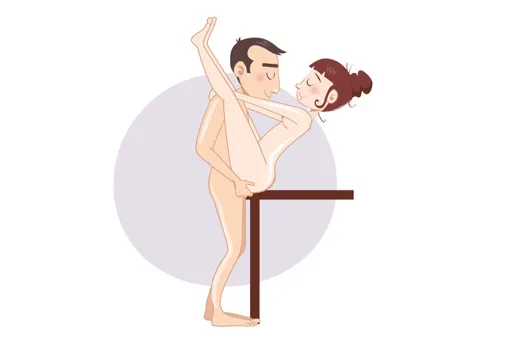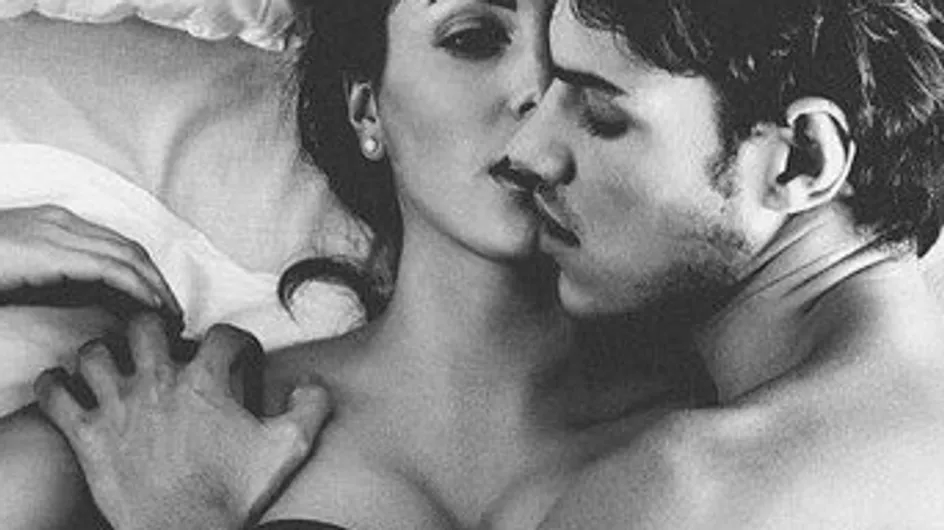Desire drives our sex lives. A relationship without sexual desire amounts to little more than friendship. Different physical and psychological factors are involved in triggering sexual desire: lifestyle, upbringing, hormones, fantasies and feelings. But how do and men and women compare and what are the major differences?
We spoke to leading psychosexual clinical nurse specialist at London Bridge Hospital, Emma Waring to tell us everything we needed to know. She says, "The arousal model proposed by Masters and Johnson in the 60's suggest we move along a continuum which starts with spontaneous sexual desire, sex drive, arousal, plateau, orgasm and resolution.
"Rosemary Basson, a sex therapist who's specifically written about female sexual desire, has proposed that many women function slightly differently and this is likely to be in a more circular model. Basson suggests that actually many women are sexually 'neutral' .
"They are not negative about sex but they are not necessarily likely to initiate it, and have less spontaneous sexual desire than men. They are much more likely to be affected by relationship satisfaction, emotional intimacy and that if these things are fulfilled and their partner initiates sexual contact which leads to arousal then the sexual desire kicks in. So in many ways this is a reversal of the way many men function."
Hormonal influences
The hormone that controls male and female sex drive is testosterone. It’s produced by the testicles and adrenal glands in men, and by the ovaries in women.
Emma says, "A man’s testosterone gently falls from age 20 onwards and at 75 it can be half the level of a 20 year old. A testosterone that is too low can cause problems but many men manage perfectly well without problems and remain well".
Because our testosterone levels are lower than our partners', could this be the reason for our inferior sex drive? Not necessarily: the female body is a lot more sensitive to testosterone than the male body, which makes up for the difference.
"Health care professional have a reference range for measuring testosterone but interestingly you can find a man with a Testosterone level at the lower end of 'normal' with a perfectly good sex drive and equally you can have a man with a testosterone level that's considered relatively high that complains of low libido so its worth considering a number of factors such as general health, medication, stress, depression and other mental health issues as well as relationship factors, and erectile and ejaculatory function."
Hormonal fluctuations, particularly during the menstrual cycle, influence the intensity of a woman’s sex drive. Over the days prior to ovulation, our bodies register a peak in oestrogen and our libido soars (except in women who use hormone-based contraception, of course). And after giving birth we secrete prolactin, which reduces our sex drive.
Psychological factors
Upbringing, culture and centuries-old social and religious attitudes still put a significant amount of moral pressure on women and make them less willing to express desire than men. This perhaps explains why men are able to disassociate sexual desire from their feelings: they are perfectly able to make love with someone they’re not in love with. Nevertheless, the more attached they are to their partner, the more intense their libido is.
Emma says, "When I am working with a client or couple its really helpful for me to have an understanding of that person's background, including cultural and religious influences that may have impacted on their thoughts about sex and sex drive as well as how they learnt about sex. Did they grow up in a family where sex was talked about comfortably or was this a subject that provoked feelings of embarrassment? How did they feel about their bodies growing up particularly during puberty?
"I ask clients to describe their first sexual experiences. It's understandable if a person has had a negative experience this may well influence how they feel about going into future sexual relationships. Sometimes clients will disclose sexual abuse and obviously this can have a devastating impact on their ability to view sexual intimacy in a positive light or indeed to r- frame what sexual intimacy means for them."
Furthermore, male sex drive tends to be impulsive and comes from within, whereas a woman’s sex drive is more likely to be aroused by desire and arousal by her partner, by pleasant surroundings and a relaxing situation that encourages affection.
Age & sexual desire
Sexual desire in men starts at puberty, when they first begin to masturbate. It develops until they reach the age of 50, and can then start to decline. With age, some men experience andropause, a reduction in testosterone that leads to low libido.
"At puberty our brain releases gonadotropin-releasing hormone (GnRH) When GnRH reaches the pituitary gland it triggers two hormones: luteinising hormone (LH) and follicle-stimulating hormone (FSH). Men and women both have these hormones in their bodies although they will work on different areas in the body. It is during puberty (which will begin at varying times) that sexual awareness and interest is triggered", says Emma.
Although sexual desire in women begins later on, it increases with time, and especially with experience. Sexual maturity is usually reached at around 35 years of age. During the menopause, a woman's oestrogen levels drop and her ovaries produce less testosterone. But since psychological factors are involved as well, it doesn’t necessarily mean that her libido will decrease. As women have more time to think about their relationship and desires, they give their sex lives more attention. The menopausal period in a woman’s life often marks an upturn in her sex drive.
The best moments for him and for her
Why does he always want to get frisky in the morning when you’re in a rush and not fully with it?
First thing’s first, it’s not to annoy you! Male testosterone levels climb to 30% in the morning, hence their early-morning energy. Women need to feel relaxed, calm and clear-headed to get in the mood for sex.The ideal time for us is in the evening, once the kids are tucked up and the day's worries have been forgotten. You could say there’s a bit of a timetable clash between male and female sex drive.
Emma says, "Some women find that the menopause can have an effect on their libido and hormone replacement therapy (HRT) can be helpful for some women. This is something your GP will be able to discuss with you and then prescribe if appropriate."
Seasonal change also causes our biorhythms to intervene in our sex lives. Women see their sex drive surge at the start of spring because of a significant peak in oestrogen. Male senses are awakened later on, at the start of summer.
How to get in tune with each other
When your partner isn't in the mood, you can feel rejected, unloved and unattractive. To avoid this type of situation, which is unpleasant for both parties, communicate with each other! Both of you need to express your feelings and frustrations so that you feel close to each other.
Emma says, "In many cases of a lose of sexual desire seeing a sexual therapist can help. Talk with your partner (if you have one) about your problem and see a therapist together if you can. You can see a sex therapist on your own if you are single as well. It can be difficult for some people to overcome issues of embarrassment and this can stop them seeking help but it's worth remembering that many people experience sexual difficulties and help is out there".
What's your take on it? Tweet us @sofeminineUK!
Need some sexpiration? Try these positions for HOT mind-blowing sex...

You might also like:
Want Sheet Grabbing Sex? 10 Tips For Red Hot Foreplay
10 Spontaneous Sex Tips That Will Blow His Mind
How To Have Great Sex! 10 Do's & Don'ts For Mind-Blowing Sexy Time
















